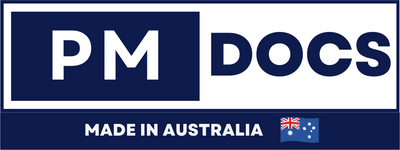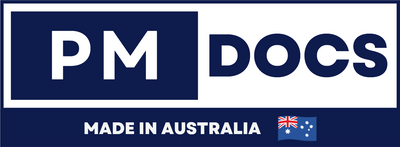SOC 2 Trust Service Principles Explained For Startups In Australia
Introduction
In today's digital age, ensuring data security and privacy is crucial for any business, especially for startups looking to establish trust with clients and stakeholders. The digital landscape is fraught with potential threats, from data breaches to cyber-attacks, making robust security measures indispensable. For Australian startups, achieving SOC 2 compliance can be a vital step in demonstrating their commitment to safeguarding sensitive information. Compliance with SOC 2 not only fortifies the company's defenses but also enhances its reputation in a competitive market. This article delves into the SOC 2 Trust Principles and explains why they are essential for startups in Australia, particularly in an era where data integrity and security are paramount.

Why Is SOC 2 Important For Startups?
1. Building Trust with Clients
Startups often face the challenge of proving their credibility in the market. Establishing trust is foundational for securing new business and nurturing client relationships. SOC 2 compliance helps build trust with potential clients by showing that the company adheres to high standards of data security and privacy. It reassures clients that their information is safe, which can be a significant selling point in a competitive landscape. By demonstrating a commitment to protecting client data, startups can differentiate themselves from competitors who may not have the same level of security assurances.
Furthermore, being SOC 2 compliant can also open doors to partnerships with larger enterprises that require stringent security measures from their partners. These larger companies often have rigorous vendor assessment processes, and SOC 2 compliance can streamline these evaluations, making it easier for startups to engage in high-value collaborations.
2. Enhancing Risk Management
Risk management is critical for startups, especially those dealing with sensitive client data. The potential consequences of a data breach, including financial losses, reputational damage, and legal ramifications, can be devastating for a young company. SOC 2 compliance requires companies to implement rigorous security measures, reducing the risk of data breaches and other security incidents. By proactively addressing potential vulnerabilities, startups can safeguard their assets and ensure business continuity.
Moreover, the process of becoming SOC 2 compliant inherently involves a thorough examination of a company's internal controls and processes. This introspection can uncover inefficiencies or weaknesses that might not have been apparent before, allowing the startup to address these issues and strengthen its overall operations. In doing so, startups not only enhance their security posture but also improve their resilience against future threats.
3. Meeting Regulatory Requirements
While SOC 2 is not legally required in Australia, it aligns with other international standards, making it easier for startups to comply with various regulatory requirements. Given the global nature of business today, startups often find themselves needing to navigate a complex web of international regulations. SOC 2 provides a robust foundation that can help streamline compliance with other frameworks, such as GDPR in Europe or CCPA in California. This can be particularly beneficial for companies looking to expand globally, as it demonstrates a commitment to universally recognized best practices in data security.
Additionally, being proactive about data protection and regulatory compliance can position startups favorably in the eyes of regulators and potential investors. It shows that the company is forward-thinking and prepared to meet the challenges of operating in a global market. This foresight can be a decisive factor in attracting investment and facilitating international growth.
The Five SOC 2 Trust Principles
Understanding the SOC 2 Trust Principles is essential for startups aiming to achieve compliance. These principles serve as the foundation for establishing a secure, reliable, and trustworthy operation. Let's explore each principle in detail.
1. Security
The Security principle is the foundation of SOC 2. It ensures that the system is protected against unauthorized access, both physical and logical. This includes implementing measures such as firewalls, intrusion detection systems, and multi-factor authentication to safeguard data. By focusing on comprehensive security strategies, startups can prevent unauthorized data exposure and mitigate the risk of cyber threats.
2. Availability
The Availability principle focuses on ensuring that the system is available for operation and use as committed or agreed. This involves implementing controls to minimize downtime and ensure that systems are resilient to disruptions. For startups, maintaining system availability is critical to delivering consistent service to clients and avoiding potential revenue loss due to system outages.
3. Processing Integrity
The Processing Integrity principle ensures that system processing is complete, valid, accurate, timely, and authorized. Startups need to implement controls that detect and correct errors to maintain the integrity of their data processing. Accurate and reliable data processing is essential for making informed business decisions and maintaining operational efficiency.
4. Confidentiality
The Confidentiality principle pertains to protecting sensitive information from unauthorized access. This involves implementing encryption and access controls to ensure that confidential data is only accessible to authorized individuals. For startups, safeguarding confidential information is not only a legal obligation but also a critical component of maintaining client trust.
5. Privacy
The Privacy principle addresses the collection, use, retention, disclosure, and disposal of personal information. Startups must establish policies and procedures to protect personal data in accordance with relevant privacy regulations. As data privacy becomes an increasingly important concern for consumers, adhering to this principle can enhance a startup's reputation and competitive standing.
Steps To Achieve SOC 2 Compliance
Achieving SOC 2 compliance involves several steps that startups need to follow. This process requires careful planning and execution to ensure that all necessary controls are in place. Here's a simplified guide to get you started:
Step 1: Define Your Objectives
Before embarking on the SOC 2 compliance journey, it's crucial to define your objectives and understand why compliance is essential for your business. This will guide the entire process and help you focus on the areas that matter most. Clearly defined objectives will also provide a framework for measuring success and evaluating the impact of compliance on your business.
Step 2: Conduct a Readiness Assessment
Conducting a readiness assessment helps identify gaps in your current processes and controls. This assessment provides a clear picture of what needs to be done to achieve compliance and prepares your team for the formal audit. By understanding your current state, you can develop a roadmap for implementing necessary changes and improvements.
Step 3: Implement Necessary Controls
Based on the findings of the readiness assessment, implement the necessary controls to address any identified gaps. This may involve enhancing security measures, updating policies, and improving documentation processes. Implementing these controls requires collaboration across different departments to ensure that all aspects of the organization are aligned with compliance objectives.
Step 4: Engage a Qualified Auditor
Engage a qualified third-party auditor to conduct the SOC 2 audit. The auditor will evaluate your controls against the SOC 2 Trust Principles and issue a report that outlines your compliance status. Selecting an experienced auditor is critical to ensuring a thorough and unbiased assessment of your compliance efforts.
Step 5: Continuous Monitoring and Improvement
SOC 2 compliance is not a one-time effort. It requires ongoing monitoring and improvement to ensure that controls remain effective. Regularly review and update your policies and procedures to maintain compliance. Continuous monitoring helps identify emerging threats and vulnerabilities, allowing you to take proactive measures to mitigate risks.
Benefits Of SOC 2 Compliance For Australian Startups
1. Competitive Advantage
SOC 2 compliance can give startups a competitive edge by demonstrating their commitment to data security and privacy. This can be a significant differentiator in a crowded market, where customers increasingly prioritize companies that prioritize data protection. By positioning themselves as leaders in security, startups can attract clients who value privacy and are willing to pay a premium for secure services.
2. Enhanced Client Relationships
Achieving SOC 2 compliance can strengthen relationships with clients by building trust and confidence in your company's ability to protect their data. Clients are more likely to engage with businesses that demonstrate a commitment to security and privacy. By meeting these expectations, startups can foster long-lasting partnerships and increase customer loyalty.
3. Improved Operational Efficiency
The process of achieving SOC 2 compliance often leads to improved operational efficiency. By implementing robust controls and processes, startups can streamline their operations and reduce the risk of security incidents. Efficiency gains can be realized through better resource allocation, more effective risk management, and a clearer understanding of organizational processes.
Conclusion
In an increasingly digital world, SOC 2 compliance is becoming a crucial consideration for Australian startups. By adhering to the SOC 2 Trust Principles, startups can enhance their risk management strategies, build trust with clients, and gain a competitive advantage in the market. The commitment to data security and privacy is not just a regulatory requirement but a strategic imperative that can drive business success.




